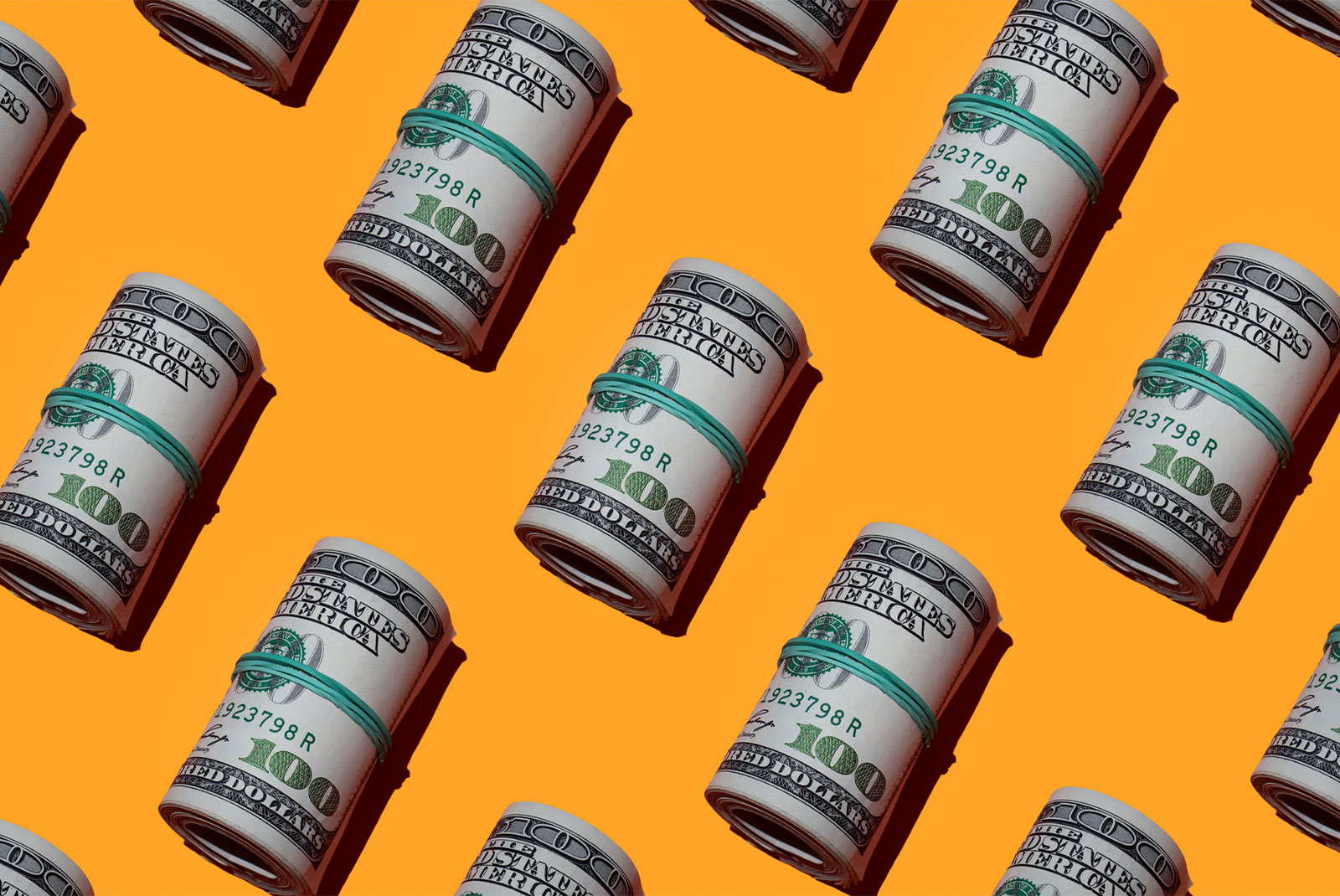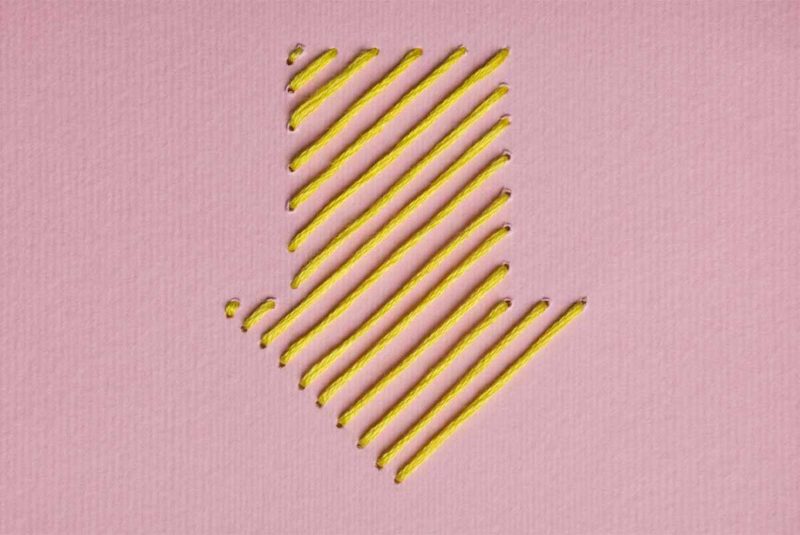Credit cards come with some wonderful perks. From attractive rewards and fraud protection benefits to credit-building potential, it’s no wonder that average Americans carry around four credit cards in their wallets. But when credit card debt grows out of control, it can cause serious problems in your financial life.
If you feel like you’re drowning in credit card debt, you may wonder if there’s a way out. You may even wish for a way to pay less money than you owe to your card issuer and call it a day.
Believe it or not, paying less than the full amount you owe and having your card issuer forgive the rest is sometimes possible. It’s called debt settlement or debt relief.
That might seem like a great solution, especially if you need relief right now. But before you get too excited at the possibility, it’s important to examine the debt settlement process in detail. You’ll also want to consider the potential consequences of legally settling accounts for less than you owe.
What Is Debt Settlement?
When you open a credit card account, you agree to repay the money you borrow plus interest and fees. And, in general, your card issuer expects you to keep up your end of the bargain.
Credit card debt settlement is an arrangement that lets you pay less than you promised to pay in your original credit card agreement.
For example, you might owe your credit card company $5,000 in charges, interest, and fees. If your card issuer agrees to accept only $3,000 and consider your debt satisfied, that’s debt settlement.
How Does Debt Settlement Work?
In general, a creditor won’t consider a settlement offer if you’re current on your bill. But if you’re behind on payments, the situation may change. Rather than risking the loss of its full investment (aka the money a creditor loaned you plus expected interest and fees), a creditor may try to recoup as much money as possible with a partial settlement.
Debt settlement negotiations typically begin in one of three ways:
- Your creditor may reach out to you with an offer to settle your past-due account for less than you owe.
- A collection agency may reach out to you with a debt settlement offer.
- You may reach out to a creditor or collection agency to try to resolve a delinquent debt for less than your balance.
Regardless of which party initiates the offer, you have two ways to manage the process from your end. There’s a do-it-yourself version of debt settlement where you negotiate with the creditor or collection agency on your own. You can also hire a professional debt settlement company to negotiate on your behalf.
What About DIY Debt Settlement?
You can call creditors and third-party debt collectors yourself to try to work out reduced settlements. If you decide you want to negotiate on your own, here are some tips that may help.
- Debt negotiations typically work best when you can pay a lump-sum settlement. Save money in advance so you’ll be in a better bargaining position when you make your offer. Tax refunds, bonuses, and other influxes of cash may be great ways to build your debt settlement fund faster.
- You and the creditor or collection agency have opposite goals. You’re trying to save as much money as possible. Your creditor or debt collector wants to collect every penny it can.
- Be prepared for some back and forth. Keep your first offer low, especially if you’re saving to settle multiple debts. For example, you might initially offer to pay 30% to 40% of your balance, knowing that you can afford to pay a little more if the creditor pushes back. Don’t be afraid to turn down an offer and call back later.
- When you reach a settlement agreement that you can afford, get the offer in writing. Never share your bank account details or other payment information until you have a written settlement-in-full agreement in hand.
If you’re successful, DIY debt settlement might save you money in the long run. Since you’re managing the process on your own, you won’t have the added fees a debt settlement company would charge you.
What About Debt Settlement Companies?
Debt settlement companies can negotiate with creditors and collection agencies on your behalf. But before you hire a debt settlement company or attorney, consider the following:
- Professional debt settlement can be expensive. Companies may charge 20% or more to negotiate debts on your behalf. That percentage might be based on how much the debt settlement company saves you (better) or it may be a percentage of the total balance of your debt (more expensive). For example, if a debt settlement company negotiates a $2,000 debt down to $1,000, you might owe the company $200 for its services ($1,000 x 20% = $200). But if the company charges 20% of your balance to settle accounts, the fee would be $400 instead ($2,000 x 20% = $400). Other fees often apply as well.
- The process could take years. A debt settlement company will generally have you save a “war chest” of cash it can use to negotiate with your creditors. You can either deposit a large sum into the debt settlement company’s escrow account or, more commonly, you can add a little money to the account each month.
- A debt settlement company may tell you to stop paying your creditors. Creditors generally won’t accept a lower settlement offer unless your account is delinquent. But if you stop paying your creditors, you may damage your credit rating. Your balances may also climb thanks to late fees and penalty interest.
- There’s no guarantee a debt settlement company will settle your accounts for less. Even if you work with an experienced debt settlement professional, there’s a chance your creditor might say, “no thanks.”
- Beware of debt settlement scams. It’s illegal for debt settlement companies to charge upfront fees. Also, if a company promises to wipe out your debt or tells you that you have to hire a professional to settle your debts, these are big red flags.
A good debt settlement company might be able to negotiate better deals for you than you can on your own, though there’s no guarantee. You may also save time and avoid some stressful situations by hiring a professional.
What Are the Benefits of Debt Settlement?
Debt settlement comes with some attractive perks that could work in your favor, whether you manage it yourself or work with a pro.
Settling your debts might:
- Help you save up to 50% or more off your credit card balances or other types of accounts you can successfully settle
- Protect you from being sued by creditors or collection agencies
- Stop annoying collection calls or letters
- Help you avoid filing bankruptcy
What Could Go Wrong?
You shouldn’t consider the perks of debt settlement without also taking a look at the drawbacks.
1. Debt settlement has limitations
Settlement can be an effective strategy with certain types of unsecured debt. For example, you may be able to resolve delinquent credit cards, medical bills, and other collection accounts via the debt settlement method.
But if you’re late on an auto loan or mortgage payment, the creditor can seize your collateral (aka your car or home) and sell it to try to recoup its losses. Student loans generally can’t be resolved with debt settlement either. However, your lender may offer hardship programs or rehabilitation instead.
2. Debt settlement might not be affordable
Traditional debt settlement involves making a big payment to a creditor that’s less than your total outstanding balance. In exchange for this lump sum payment, the creditor agrees to accept less than you owe to satisfy your debt.
In reality, you may not have the means to come up with this kind of money — at least not very quickly. After all, if you had access to large amounts of cash, you probably wouldn’t be behind on your bills in the first place.
3. Debt settlement could hurt your credit rating
Settled debt could have a negative impact on your credit reports and scores in a few different ways. First, a debt settlement company might advise you to stop making payments on your accounts. Those late payments could hurt your credit scores. Remember, a creditor generally won’t accept less than you owe if your bill is current.
Next, your creditor may report to the credit bureaus that the account was “settled for less than the full balance.” This notation can be bad for your credit scores. However, if your scores were already damaged by negative credit history (late payments, collections, etc.), then adding a settlement to the mix may not have a noticeable impact.
Finally, when you settle for less your credit card company might opt to close your account (if it wasn’t already closed due to a past-due balance). A new credit card closure may increase your credit utilization ratio, and that’s often bad for your credit scores.
4. You could get stuck with extra tax payments
When you settle a debt, your creditor forgives the difference between the amount you really owe and the settlement amount you pay. So, if you pay $2,500 to settle a $5,000 debt, your creditor forgives the remaining $2,500 balance.
If your creditor forgives more than $600 in debt, the IRS may require the company to send you a cancellation of debt notice (Form 1099-C). And you’ll need to add the amount of forgiven debt to your tax return as “other income.” This means that you might owe more taxes (or receive a smaller refund) than you would have otherwise.
The IRS can actually help you with that. You can have this additional tax liability wiped out. If you’re insolvent — meaning your liabilities are higher than your yearly income — your tax preparer may suggest filling out IRS Form 982. (Reduction of Tax Attributes Due to Discharge of Indebtedness)
Talk to a tax professional for individual advice and more information.
What Are Debt Settlement Alternatives?
Debt settlement is one way to deal with out-of-control credit card debt. But it’s not the best choice for every financial situation.
Before you commit to professional or DIY debt settlement, here are four alternatives to consider.
Debt consolidation
You may be able to consolidate your debt with a personal loan, a credit card balance transfer, or a debt repayment service. If you can secure a lower interest rate with a new financing offer, it may reduce your monthly payment, depending on your new payment terms. A lower rate may also help you pay down your debt faster and save money on expensive interest fees. Get more information about ways to consolidate credit card debt.
Hardship relief
When a job loss, illness, or other financial emergency makes it hard to keep up with your monthly payments, your creditor may be willing to offer you temporary hardship relief. A hardship program may include lower monthly payments or temporarily reduced interest rates to help you get back on your feet.
It’s best to reach out to your creditor before you miss a payment to learn if hardship relief is available. Even if your creditor offers a hardship program, it could include some unpleasant side effects like account closure or negative credit reporting. Be sure to ask questions and find out all of the details before you move forward.
Debt management plan
A credit counseling agency can try to negotiate lower monthly payments and reduced interest with some of your creditors. This option is called a debt management plan or DMP.
Most DMPs are not free. Even non-profit credit counseling agencies may charge startup fees and monthly fees of up to $30 or more for their services. The average debt management program also takes three to five years to complete and any credit cards you include in the plan will likely be closed.
Bankruptcy
When all else fails, it may be time to talk to a bankruptcy attorney about your debt. Bankruptcy can protect you from your creditors when you can’t afford your regular monthly payments.
Filing bankruptcy should usually be an option of last resort. Once you file, a bankruptcy can haunt your credit reports for up to 10 years.
Next Steps
Now that you’ve studied the benefits and drawbacks of debt settlement, along with some alternative options, you should be able to decide if professional debt settlement sounds like a good fit for you. If you’re ready to move forward, the next step is to do your homework before you decide which debt settlement professional to hire.
Be careful to choose a debt settlement company with a good reputation. You can check with your state attorney general for complaints. The Consumer Financial Protection Bureau also recommends reaching out to your state’s bank regulator to verify that the debt settlement company you’re considering is licensed to do business in your state (if required).
The Short Version
- Debt settlement allows you to pay off your creditors for less than you owe, which could negatively affect your credit
- Creditors generally won’t consider a settlement offer if you’re current on your bill. But if you’re behind on payments, they might
- If it’s more than $600, the forgiven debt becomes “other income” on your tax return and you might owe more taxes or receive a smaller refund




